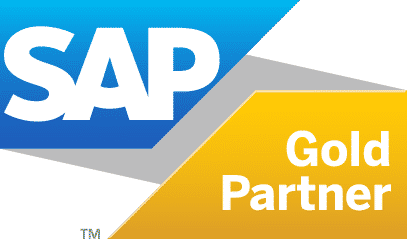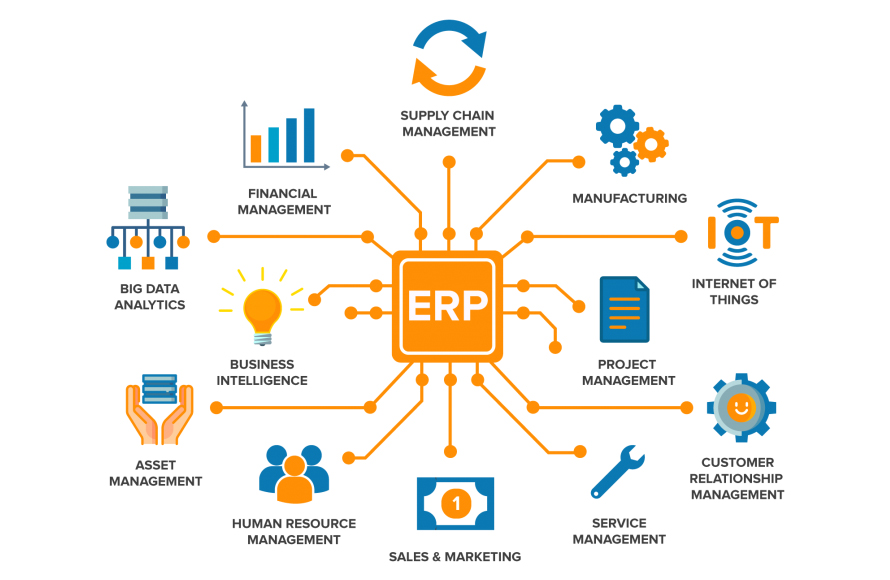
Inventory, order, and supply chain management, as well as assistance with procurement, production, distribution, and fulfilment, are just some of the essential business functions that can be integrated and automated by using enterprise resource planning (ERP) software. The term “cloud ERP” refers to an enterprise resource planning (ERP) system that operates on the cloud platform of a vendor rather than on an on-premises network. This provides businesses with the ability to access the system over the internet. ERP software also provides a single source of data. Because the program is accessed over the internet by organizations, a connection, and a web browser are required.
What is meant by the term “cloud ERP software”?
Because it is hosted by the ERP vendor and offered as a service to organizations, cloud-based enterprise resource planning software provides the same or better capabilities than on-premises systems while eliminating the majority of the drawbacks, such as upfront licensing fees.
According to a statement made by IDC in its analysis, “demand for cloud-based ERP systems is continuing to expand due to their capacity to access and analyze enormous volumes of data in near real-time.”
This entails providing sales teams with real-time insights into the inventory and freeing up the finance teams to maintain a close eye on the cash runway and swiftly respond to audits or other calls for performance data.
How does an ERP system run on the cloud?
Cloud ERP solutions use several different technologies connected to the internet at a breakneck speed. The cloud ERP is constantly online, and the ERP provider is responsible for handling any necessary security updates. Your team’s only responsibility is to log in and use the ERP system and the data it contains. This could result in a lower total cost of ownership compared to more traditional ERP systems housed on servers that the organization owns.
Cloud-based enterprise resource planning systems are typically accessible to mobile and desktop users. They contain a diverse selection of business applications designed to keep your company operating effectively while providing a satisfying experience for customers and producing profitable business results.
In the post-COVID business climate, when an increasing number of employees are working from home and other distant places, the importance of having the ability to log in from any location securely cannot be overstated. Cloud-based enterprise resource planning systems have a nearly endless potential to scale and enable your team to access whatever information they require regardless of where their work takes them. This includes customer sales meetings, remote worksites, and your home office.
The capacity to access client information, sales history, financial data, human resources management tools, live operating metrics, the health of the supply chain, and other features are among the most critical aspects of the product. A cloud enterprise resource planning system may integrate practically all of the computer systems that your firm needs.
You have the option of selecting from a variety of deployment models, each of which comes with modules and configurations that are tailored to the specific demands of your kind of organization. This might help your team remain focused on the appropriate measurements and workflow to fulfil your firm’s goals.
The Concepts Behind Cloud ERP
As we delve deeper into the topic, it is essential to have a solid understanding of the following fundamental ideas linked with cloud ERP:
- Regarding deployment strategies, enterprise resource planning (ERP) software can either be installed on-premises or on privately hosted servers or purchased in an “as a service” approach. Cloud ERP capability may typically be delivered in a shorter period than on-premises ERP functionality; however, businesses still need to schedule adequate time for planning, data migration, customization, configuration, and staff training.
- Cloud-based enterprise resource planning (ERP) software is enterprise resource planning software housed offsite on the servers of the ERP provider and is given as a service, accessed through a web browser.
- On-premises ERP is an abbreviation for enterprise resource planning software installed locally on a company’s computers and servers and controlled by internal or contracted IT professionals. The software and the infrastructure that supports it are managed, stored, and maintained internally at the company.
- When companies look to outsource their information technology activities, hosted deployment options are frequently used. A corporation or a hosting provider controls the deployment of enterprise resource planning (ERP) software and the accompanying infrastructure in a hosted ERP system. Although this configuration does offer certain cloud-based advantages, it is not a genuine “as a service” paradigm.
- End-to-end security refers to a safe and encrypted connection between a cloud-based ERP provider and that provider’s customers.
About Us:
Highbar Technocrat Limited, an SAP Gold Partner, helps clients in India and abroad to help them manage change. Highbar adopts an integrated approach to help you rethink your business with high agility and efficiency. At Highbar, we see disruption as an opportunity to help clients transform their businesses with granular solutions. Handling change requires confidence in decision-making, and Highbar enables this confidence in clients.
Our forte offers digitally integrated solutions for the Infrastructure, EC&O, Real Estate, Mining, Oil & Gas, Power, Smart Cities, Government, Manufacturing sectors, and much more. Our domain expertise, combined with the ERP helps clients become intelligent enterprises and highly receptive to customers’ needs. With our strategic alliances, we help clients transform
business operations, leverage data, and integrate sustainability to match the speed of change.
For further information, don’t hesitate to contact us by email at enquiry@highbartech.com or by call at +91 89767 11399.




